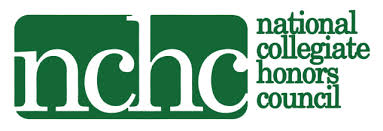Virtues of Unknowing
Instructor(s): Will Barnes
Course Description
Our theme is “the virtue of not Knowing,” specifically the question as to how important it is to know that we do not know and to unravel and deconstruct our claims to knowledge for the sake of personal growth and transformation, for resisting totalitarianism and genocidal logics, and for cultivating realistic and empowering hopes in the face of our uncertain collective future.
We will be entertaining multiple interdisciplinary cross cultural primary texts on Virtues of Unknowing including Plato’s Euthyphro, several Buddhist scriptures, as well as Buddhist literature and philosophy, as well as sections of classic texts by Sigmund Freud, Hannah Arendt, Simone De Beauvoir, Martin Heidegger and Soren Kierkegaard as well mythology from the Indigenous Colombian Quechua peoples, the political philosophy of the last principle Chief of the Apsáalooke, Alaxchíia Ahú, African American Racial Satire, as well as films, listening to podcasts and analyzing popular culture.
This is not a lecture class, classes will instead focus on active student-centered learning with various exercises in class including regular classroom discussions, Circle of Friends meeting modelled classes, Socratic style and other forms of debate, free-writing, elevator pitches, group work, Q and A sessions, mock conferences, interactive standard setting, film screenings and panels and more.
This course has no prerequisites, but students are expected to come to class prepared, engaged, and ready to learn and help each other learn.
Texts
The texts include Plato’s Euthyphro Kierkegaard’s Either/Or, short sections from Hannah Arendt’s “Eichmann in Jerusalem” I & II from the New Yorker Magazine, Simone De Beauvoir’s The Ethics of Ambiguity as well as one short Heidegger essay “On the Origins of the Work of Art,” sections from Aristotle’s Nicomachean ethics and The Great American Plenty Coups’ autobiography, and finally Radical Hope by Jonathan Lear.
Students will also be watching Ciro Guerra’s classic portrayal of indigenous Colombians, The Embrace of the Serpent. Numerous additions resources including podcasts, documentaries, videos etc. will supplement the readings.
Requirements
Students can expect to have around 4 hours of homework per week.
The class is assessed by multiple multi modal assignments which include multiple options and are designed to encourage students to develop their existing talents and passions through creative group-work, project-based learning, as well as taking risks and experimenting with potentially unfamiliar activities including podcasting, film-making, web design, graphic art, song-writing, comedy bits, poetry, literature, public speaking, presentations, seminar papers (students take turns to write a 1-2 page paper which the class reads, and then serves as the starting point of a discussion). The keystone assignment for the course is a longer research paper.
About the Instructor(s): Will Barnes
As well as in the Honors College, Will Barnes is an instructor in the Political Science, Philosophy, and Religious Studies Department at UNM. He has taught honors, writing, religious studies, general education, and philosophy at Lasell University, Bentley University, and Curry College on the East Coast. He has a Ph.D. in Philosophy, and a master’s in Buddhist Studies, and has studied Buddhism independently in Nepal. He has published multiple articles and book chapters, and several books in philosophy. Students can expect a focus on philosophical material in course content alongside the academic standards, interdisciplinarity, and creative freedom that define the Honors College.



Social Media
For news, information, prizes and more fun stuff follow us on our social media!
Honors College Resources